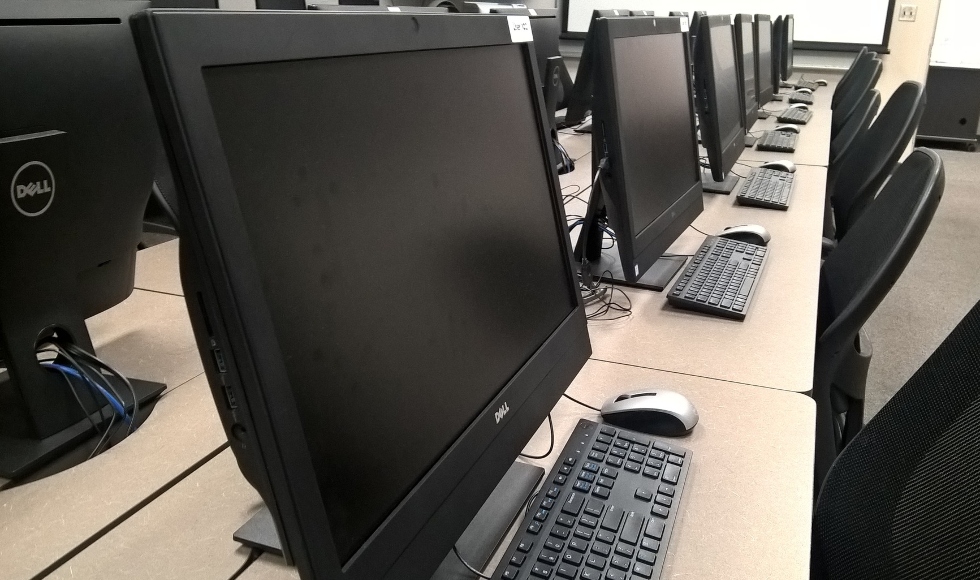Library computing power being harnessed in the fight against COVID–19

The Library has donated the computing power in 115 of its public computers to Folding@home, a supercomputing project that’s using processing power donated by individuals and organizations to perform complex calculations that could provide researchers with new insights into the novel coronavirus.
Normally, at this time of year, the public computers in Mills, Thode and Innis libraries are in high demand, being used by students for research, course assignments, printing, and web searches.
But now, with these spaces closed, the processing power in the Library’s public computers is being used in a very different way – to help in the fight against COVID–19.
The Library has donated the computing power in 115 of its public computers to Folding@home, a supercomputing project that’s using processing power donated by individuals and organizations to perform complex calculations that could provide researchers with new insights into the novel coronavirus.
“This is a small way in which the Library can help support the global effort to combat COVID–19,” says Chris McAllister, associate director of Library Computing and Campus Classroom Technologies. “Since our computers are sitting idle, we saw this as an opportunity to use these resources in a productive way – it seemed like the right thing to do.”
Folding@home is part of a research program led by computational biophysicist Greg Bowman, an associate professor of biochemistry and molecular biophysics at Washington University School of Medicine in St. Louis. The project is focussed on better understanding the process of protein “folding” – the way in which proteins are assembled within cells.
Bowman and his team are using the computing power donated by volunteers from around the world to perform calculations that could help researchers understand the structure of COVID-19’s spike protein, used by the virus to infect cells.
Library staff – working remotely – installed software on the public computers in Mills, Thode and Innis libraries to help run these calculations and send the data to the Folding@home database servers.
“If you have a large complex computational task, a single computer can only do so much,” explains McAllister. “But it you install software on multiple computers then you can distribute that task across all those machines – essentially you’re building a supercomputer.”
“We’re so pleased to contribute Library resources to such an innovative and potentially impactful project,” he adds.
In addition to COVID–19, the Folding@home project is running simulations to better understand the role protein folding plays in a number of diseases including different types of cancers, a range of infectious diseases such as Dengue Fever, and neurological diseases like Alzheimer’s, Parkinson’s and Huntington’s disease.


